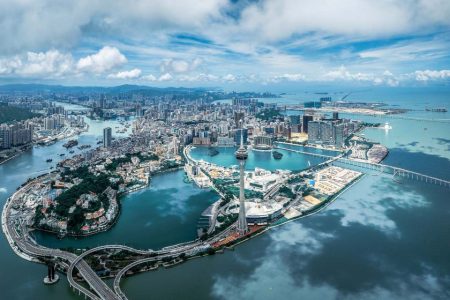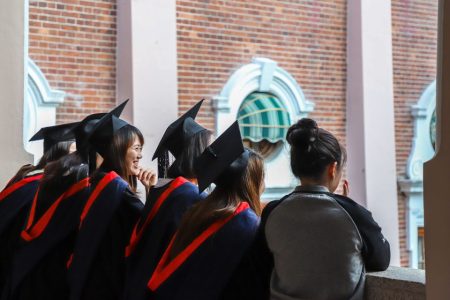The University of Macau (UM) forecast Wednesday that Macau’s economy will grow 8.3 percent this year and 7.1 percent next year.
The forecast was jointly announced by the public university’s Department of Economics and UM Centre for Macau Studies (CMS) during a press conference on the university’s campus on Hengqin Island.
According to The Macau Post Daily the press conference was co-hosted by Kwan Fung, assistant professor of the Department of Economics, legislator Agnes Lam Iok Fong, director of the Centre for Macau Studies, and Chan Chi Shing, post-doctoral research fellow of the Centre for Macau Studies.
The annual Macau economic growth forecast by the public university is based on the Macroeconometric Structural Model of Macau which was developed by economists at the UM Department of Economics.
The Macroeconometric Structural Model of Macau is a quarterly simultaneous-equations econometric model which currently covers seven segments of the Macau economy – consumption, investment, external sector, prices, government, labour market, and monetary sector, the Department of Economics says on its website. Time series data used start from the first quarter of 1998 and is updated once new data are available. Its results provide the community with a “timely” understanding of the state of Macau’s economy and can help decision-makers to make “prudent” choices for the future, the department says.
According to the press conference, Macau’s gross domestic product (GDP) is expected to grow 8.3 percent in real terms this year, ranging from a pessimistic rate of 5.1 percent to an optimistic rate of 11.6 percent.
For next year, the city’s real GDP is expected to grow 7.1 percent, ranging from a pessimistic rate of -2.4 percent (negative growth) to an optimistic rate of 16.6 percent, according to the press conference.
According to the Statistics and Census Bureau (DSEC), Macau’s GDP grew 9.2 percent year on year in real terms in the first quarter of this year, while the city’s economy recorded a real growth of six percent in the second quarter.
Meanwhile, Wednesday’s press conference also announced the launch of the Macau Economic Database Project, which aims to create a comprehensive database that will include all of Macau’s major economic indicators.
The database is expected to help researchers, students, and the general public to better understand Macau’s economic and social development so that “effective actions can be taken to increase the quality of life of Macau residents”, according to yesterday’s press conference.
The Macau Economic Database Project will be accessible in the UM Library’s database after the completion of the first phase.






